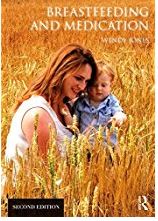I had the pleasure of working with a small team of anaesthetists for some time to develop guidelines so that breastfeeding mothers can have surgery, pain relief etc and continue to breastfeed as normal. The guideline also recommends support for the mother in terms of pumps, information and her baby nearby – not necessarily in that order.
In World Breastfeeding Week 2020 I was proud to share this guideline and infographic but sadly old habits seem to be coming back in with mothers advised incorrectly not to breastfeed for 24 hours after surgery. Policies seem to still need to be updated and training particularly of some pre-op nurses although many are up to date and well informed.
Guideline on anaesthesia and sedation in breastfeeding mothers is available in full at
https://associationofanaesthetists-publications.onlinelibrary.wiley.com/doi/full/10.1111/anae.15179
Summary
Breastfeeding has many health benefits for the mother and infant. Women who are breastfeeding may require anaesthesia or sedation. Concerns regarding the passage of drugs into breast milk may lead to inconsistent advice from professionals. This can sometimes result in the interruption of feeding for 24 hours or longer after anaesthesia, or expressing and discarding (‘pumping and dumping’) breast milk; this may contribute to early cessation of breastfeeding. However, there are data regarding the transfer of most anaesthetic drugs into breast milk. We advise that breastfeeding is acceptable to continue after anaesthesia and should be supported as soon as the woman is alert and able to feed, without the need to discard breast milk. We provide evidence-based information on the pharmacokinetics of drugs commonly used during anaesthesia so that professionals can undertake a risk-benefit discussion with the woman. We advise the development of local policies that aid logistical planning and guide staff to facilitate breastfeeding during the woman’s hospital stay.
Recommendations
- Women should be encouraged to breastfeed as normal following surgery.
- There is no need to express and discard breast milk after anaesthesia.
- Anaesthetic and non-opioid analgesic drugs are transferred to breast milk in only very small amounts. For almost all drugs used peri-operatively, there is no evidence of effects on the breastfed infant.
- Drugs such as opioids and benzodiazepines should be used with caution, especially after multiple doses and in babies up to 6 weeks old (corrected for gestational age). In this situation, the infant should be observed for signs of abnormal drowsiness and respiratory depression, especially if the woman is also showing signs of sedation.
- Codeine should not be used by breastfeeding women following concerns of excessive sedation in some infants, related to differences in metabolism.
- Any women with an infant < 2 years should routinely be asked if they are breastfeeding during their pre-operative assessment.
- Opioid-sparing techniques are preferable for the breastfeeding woman. Local and regional anaesthesia have benefits in this regard, and also have the least interference with the woman’s ability to care for her infant.
- Where possible, day surgery is preferable to avoid disrupting normal routines. A woman having day surgery should have a responsible adult stay with her for the first 24 h. She should be cautious with co-sleeping, or sleeping while feeding the infant in a chair, as she may not be as responsive as normal.
- Breastfeeding support should be accessible for lactating women undergoing surgical and medical procedures.
- Patient information leaflets and additional resources should be available containing information on the compatibility of anaesthetic agents and analgesics during breastfeeding, and guidance on breastfeeding support in the peri-operative period.
Infographic guideline on anaesthesia and sedation in breastfeeding women

